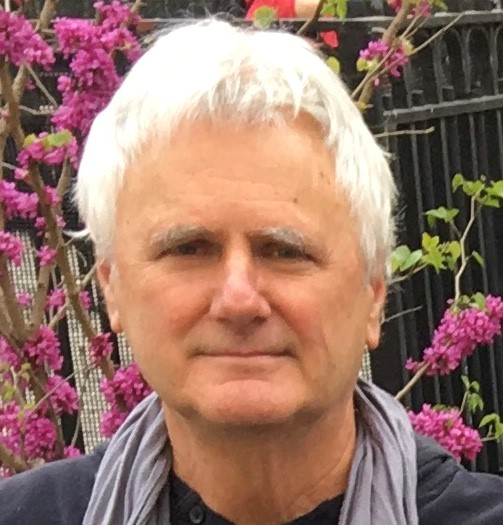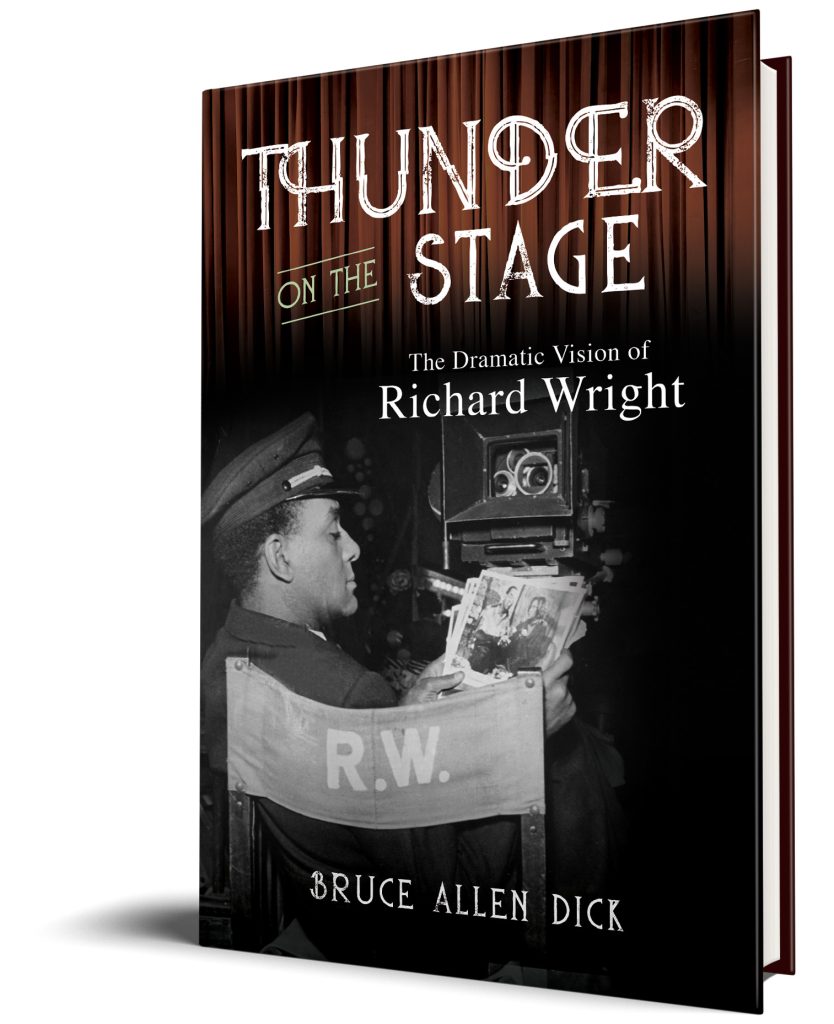Bruce Allen Dick, the author of Thunder on the Stage: The Dramatic Vision of Richard Wright, answers questions on his new book.
Q: Why did you decide to write this book? As I mention in my preface, I got the idea for the book from Michel Fabre, an important Richard Wright scholar and an early mentor. Once I started exploring Wright’s dramatic work, including his unpublished material, I realized that there was more there than I’d supposed. I knew about the Broadway production of Native Son and had taught the play in a class on African American literature. I presented a paper on Wright’s unpublished five-act play, “Daddy Goodness,” at a conference in Paris in 1992. I received positive reactions from the attending audience, which motivated me to write an article on Wright’s interest in the theater for a new collection of essays on Wright. Again, I got good feedback, from that work, which convinced me to write a book on Richard Wright and the theater.
Q: What is the most interesting discovery you made while researching and writing your book? I argue throughout Thunder on the Stage that Wright never realized the kind of success with his dramatic writings as he did with his fiction. At the same time, after reading Wright’s unpublished works that focused on aspects of the theater, I saw how he would use genres interchangeably—that is, he would write a piece of fiction or a poem, then attempt a dramatic skit or one-act, then return to his fiction. I noticed a pattern that seemed to define Wright’s career, from his posthumously published novel Lawd Today to his final writings in Paris…one kind of writing complemented the other.
Q: What myths do you hope your book will dispel or what do you hope your book will help readers unlearn? Wright is typically remembered for three books he published in the U.S.: Uncle Tom’s Children, Native Son, and Black Boy. The first two are fiction, the third an autobiography. If you explore Wright’s entire canon—his published as well as unpublished material—you’ll see that he experimented in multiple genres, including writing for the stage. Most of his dramatic writing was undeveloped and fizzled before any kind of theatrical production got off the ground. But hopefully readers will discover that Wright not only wrote adaptations but journal and newspaper pieces that focused on drama, as well as used theatrical language such as “acting,” “props,” “dialogues,” “silence,” “space,” and other terms to help accentuate his dramatic view of the world.
Q: Which part of the publishing process did you find the most interesting? Working with various editors along the way—first the acquisitions editor, then an assistant, later a general editor and a copy editor. I found those associated with the Press to be professional, knowledgeable, interested in my subject, and easy to work with.
Q: What is your advice to scholars/authors who want to take on a similar project? I explain in my Preface why it took me so long to write the book—other academic interests, raising kids, teaching, etc. I happened to luck upon a subject during a discussion with a Richard Wright scholar. Once you have a topic, you need to explore every aspect that might shed new light on your subject—archives, published and unpublished material, scholarly articles and books, and interviews with scholars and family members of the author, if possible. Those ideas apply to any scholarly text, I suppose. As for another book on Wright, there are numerous subjects and ideas still waiting to be explored.
Q: What do you like to read/watch/or listen to for fun? Now that I’m retired, I read anything that appeals to me, especially fiction and history. I’m a huge fan of Percival Everett and Jesymn Ward, but right now I’m reading Christian Wiman’s Zero at the Bone and Roberto Belano’s The Savage Detectives. I recently finished Barbara Kingsolver’s Demon Copperhead and later picked up Dickens’s David Copperfield, which I’d never read. I watch too many movies on streaming channels and listen to a variety of music, particularly blues and jazz. I also play music and last year wrote a libretto called Remembering and Forgetting about mass shootings in America. We’ll perform the piece in two venues this April.

Bruce Allen Dick is a professor emeritus of English at Appalachian State University. He is the author of A Poet’s Truth: Conversations with Latino and Latina Poets and coauthor of American Soccer: History, Culture, Class.

